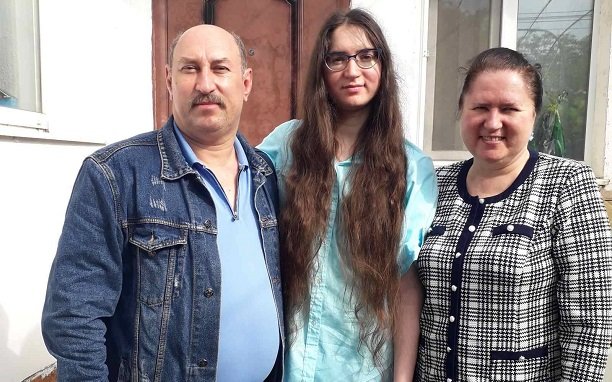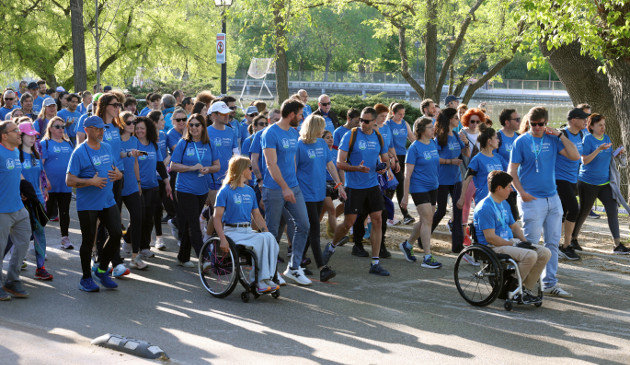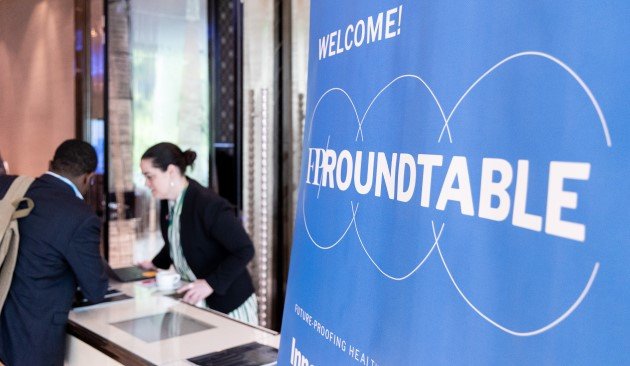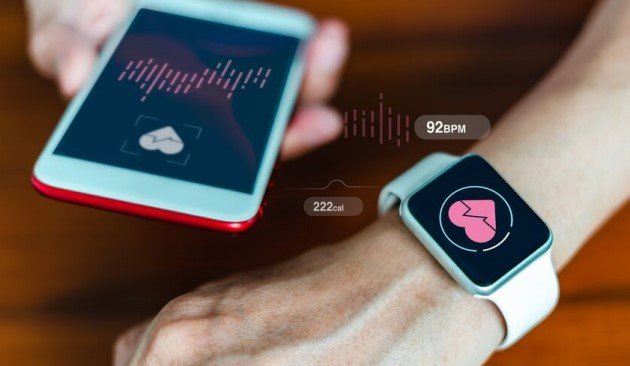Maryna Pushko, 53, hid for two months in a cellar in the bombarded city of Mariupol, Ukraine with her husband Oleksandr, her 90-year-old father, her son, daughter-in-law’s family and two grandchildren, aged five and one.
They had no heating, nor electricity and collected rainwater to drink. When they decided to flee to safety in Poland they made a five-day journey through Russia, Estonia, Latvia and Lithuania in a car riddled with shrapnel from a Russian attack and with the back window and lights blown out. Maryna, a GP, and Oleksandr, a radiologist, have been able to start rebuilding their lives thanks to the support of LUX MED, Bupa’s business in Poland's retraining programme for Ukrainian doctors.
“The Russian air strikes started in the morning of 24 February. It was very frightening. Everything was being destroyed, but we remembered 2014 when we were also shelled. We thought the bombardment would stop, and we’d go back to normal. For the first two days I continued going to work in an outpatient clinic in the job I loved. There was no transport, so my husband drove me. But the shelling became more intensive every day, and I was scared.
On the fifth day, our neighbours’ house was destroyed before our very eyes. We ran to them and thankfully they were alive, but that’s when I realised this was full-scale war. From then on, we hid in the cellar. It was more of a psychological thing to hide in the cellar because you didn’t know where a bomb would strike and going onto the street meant risking your life. The hardest thing was not knowing what had happened to my adult son and his family. When it got a little quieter, Sasha (Oleksandr) ran to their place. When he came back, he was crying – there were dead people lying in the street. Thank God, our son and his family were alive.

“On the fifth day, our neighbours’ house was destroyed before our very eyes. We ran to them and thankfully they were alive, but that’s when I realised this was full-scale war.”
But shortly after, early in the morning, our son, our daughter-in-law and their two little children ran to us because their house had been hit and destroyed by an air strike. After that we lived all together in our little cellar, our large family. And this was our everyday life during the war – difficult, frightening, but we had to carry on. The air strikes were the hardest for the elderly; they didn’t understand why they couldn’t go home or why the war had started.
Fleeing to Poland
For anyone, deciding to flee your home is difficult, but we realised we had no real choice after a Russian shell fell so close all the windows were shattered and the metal garage gates blown to pieces, damaging our car. It was my lifelong home, built by my own father.
There was no way to get to the right bank of Mariupol because the bridges were either blown up or blocked by burnt vehicles, so we drove through Russia, through customs and to Latvia, to Lithuania and then to Warsaw. Our daughter is studying psychology at Warsaw University. We hadn’t been able to talk to her for two months, so when we turned up at her dormitories at night, we were all so happy to see each other.
United by medicine
We were given such a warm welcome by the Polish people. The morning after we arrived people noticed our parked car with the shrapnel marks and broken window. There were already posts on the internet that our car had been fired upon, so people came and offered their help. We are grateful to the Polish people for repairing our car, for welcoming us to their peaceful land, and for Poland helping all Ukrainians. We are grateful to be able to come here and work, especially as we can work as doctors in Poland, which is very important to us. We met in our first year studying medicine. It was university love, but we’ve taken it through our whole lives – medicine has united us.
In the first days after coming to Poland, we started looking for work. We read online that LUX MED was accepting medical workers from Ukraine. It felt encouraging that people were specifically inviting us, so we wrote our CVs and applied. We’re so happy to be hired. I want to learn the language and help people in Poland, as they have helped us. Already I feel I am giving my medical knowledge back to people, helping to treat people here in Warsaw.
We’ve been living in Poland for four months now, and we have a place to live, jobs and a fine life. We enjoy going for walks around Warsaw, going to parks and museums. In the first months, we didn’t have the energy for the beauty. We were in shock and couldn’t believe that we’d managed to escape. Now, we can appreciate what we have, but we still think often of Mariupol and our lives before Russia started this war.”
Since Russia’s invasion of Ukraine in February, our business in Poland, LUX MED, has been supporting refugees who have been forced to flee the war. We made our position clear about not doing business with Russia as a result of the military action, and we are making a meaningful, long-term contribution to help Ukrainian refugees in Poland. To date, we have provided 240,000 free treatments to over 130,000 Ukrainian people and have employed 193 healthcare workers from Ukraine. We will continue to fund this support for as long as needed.



